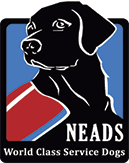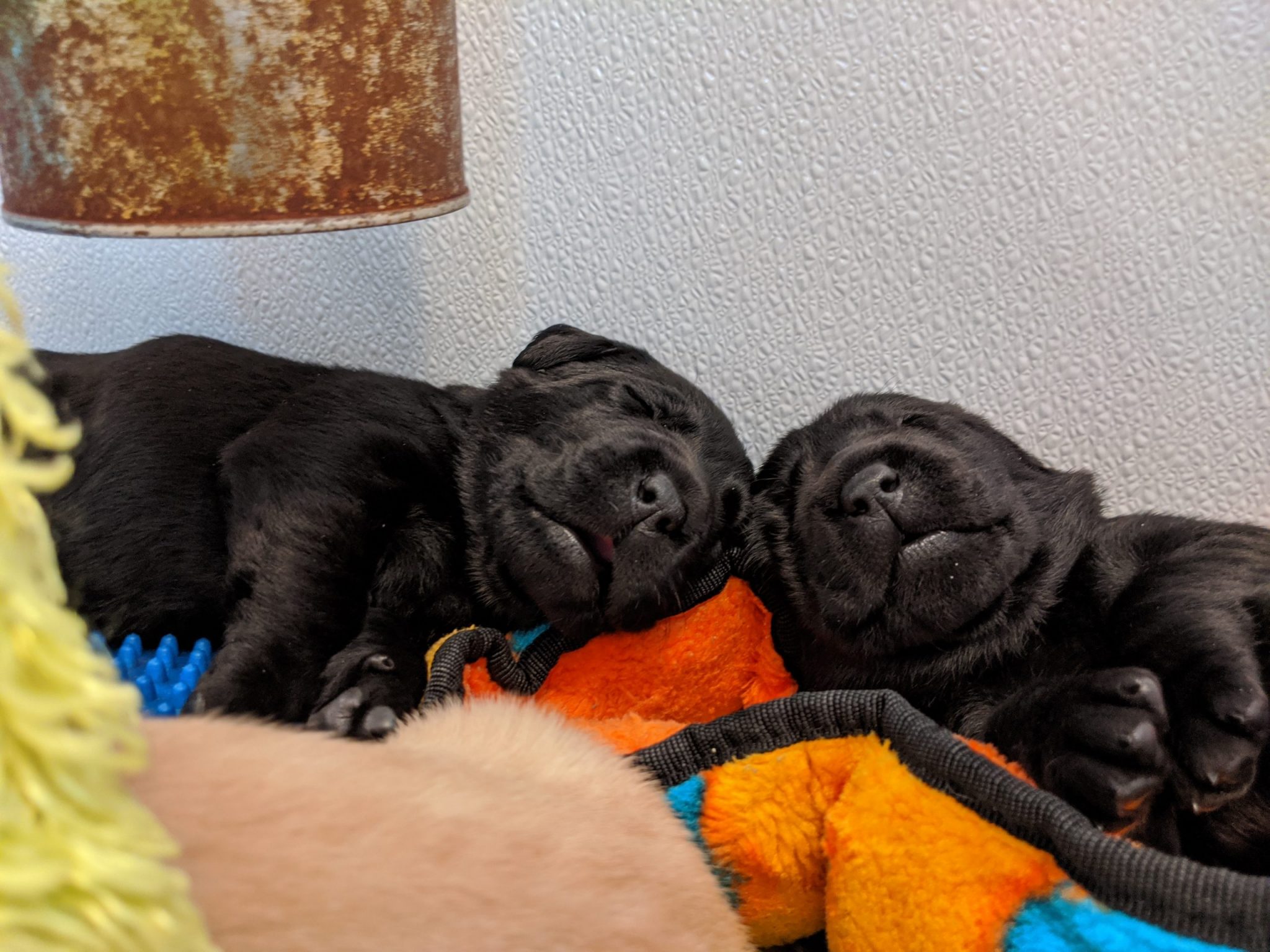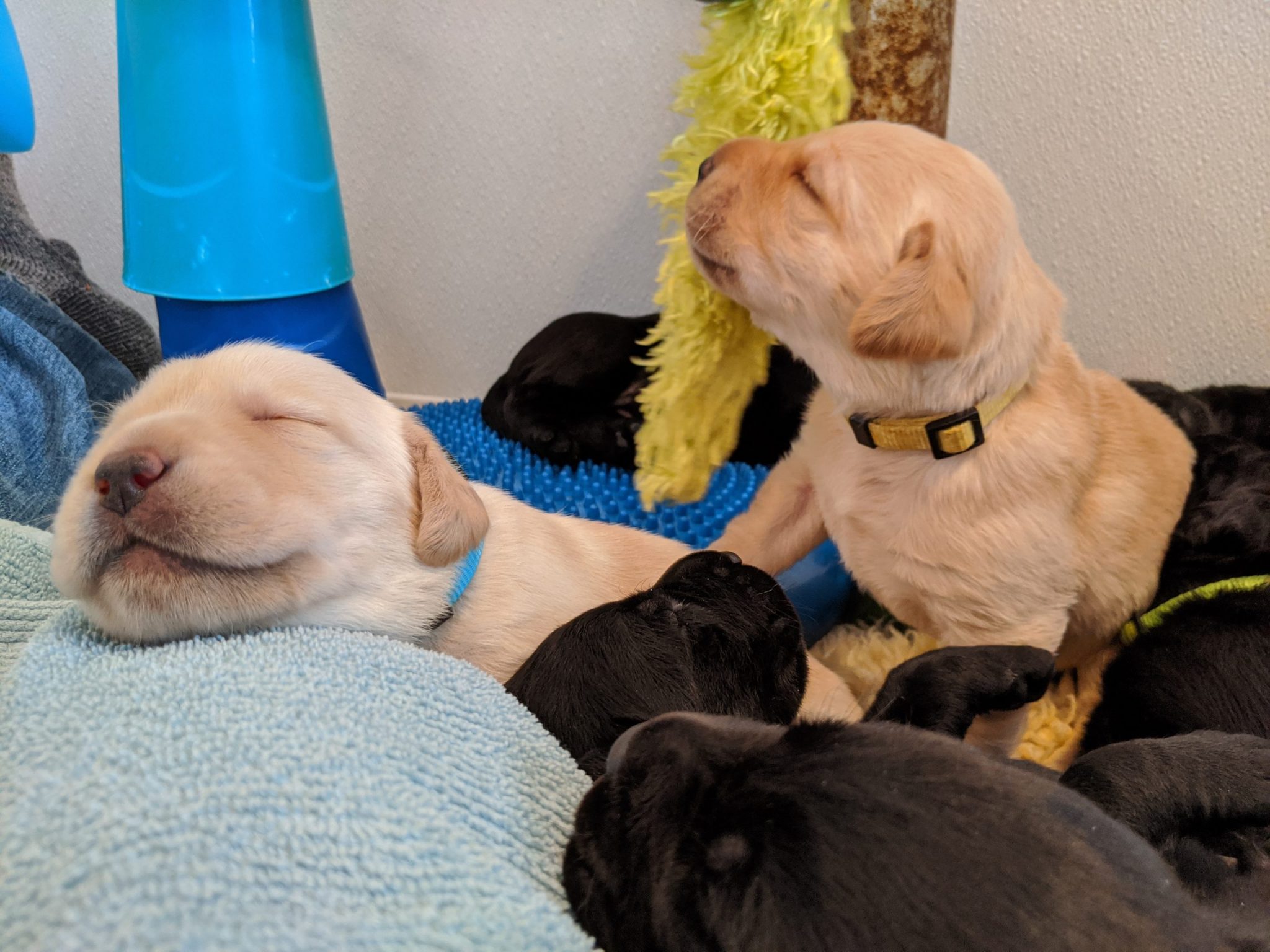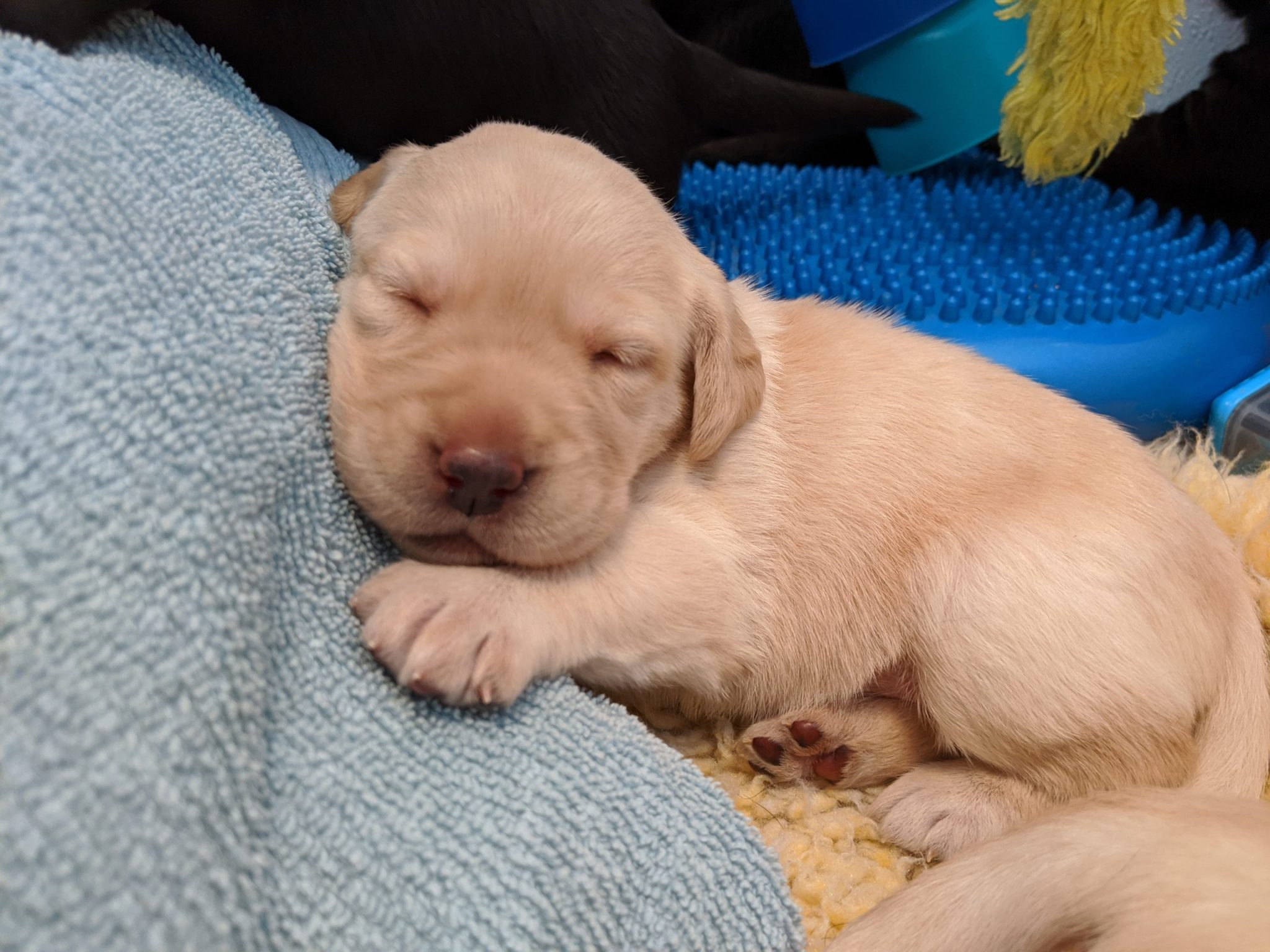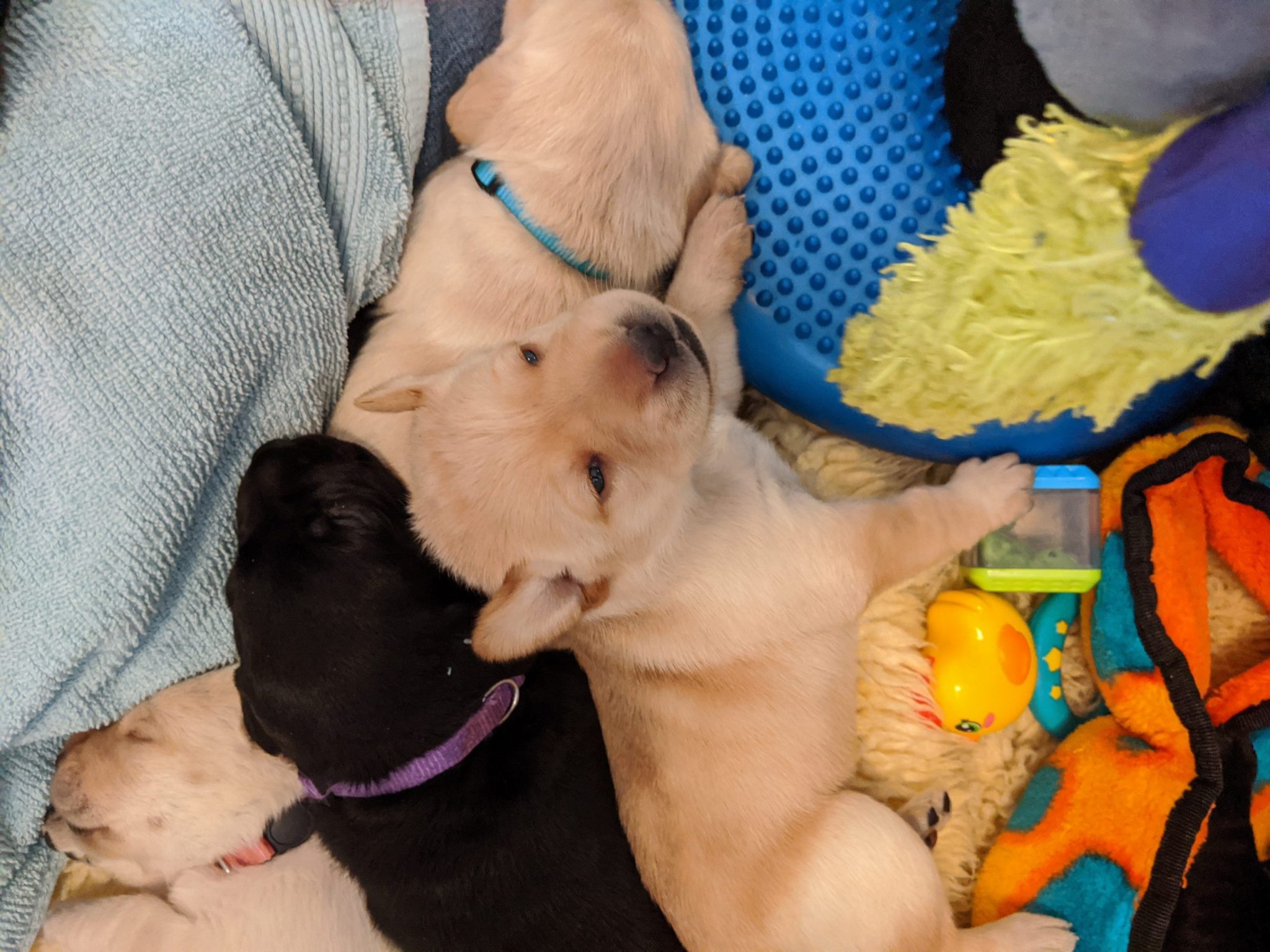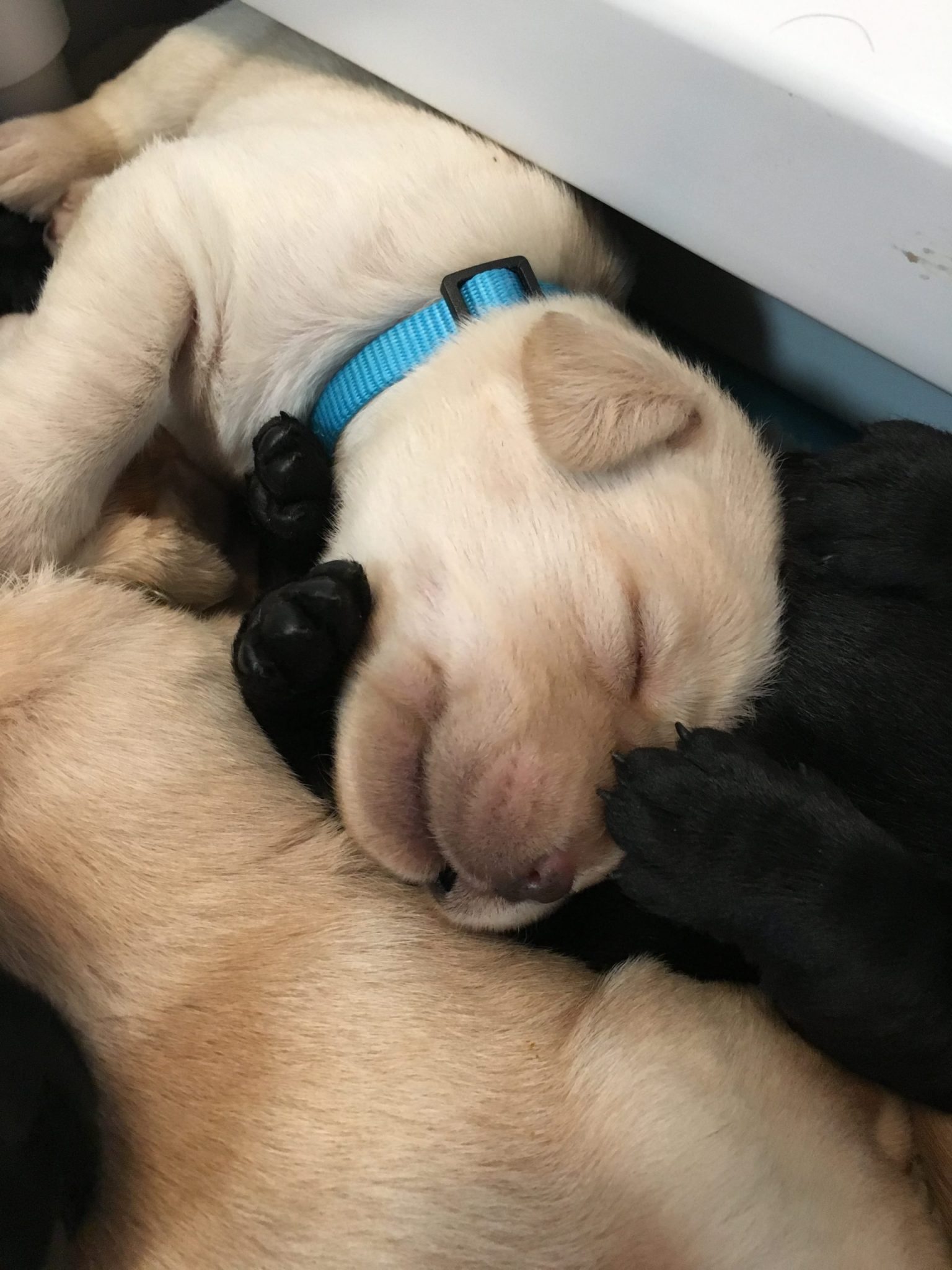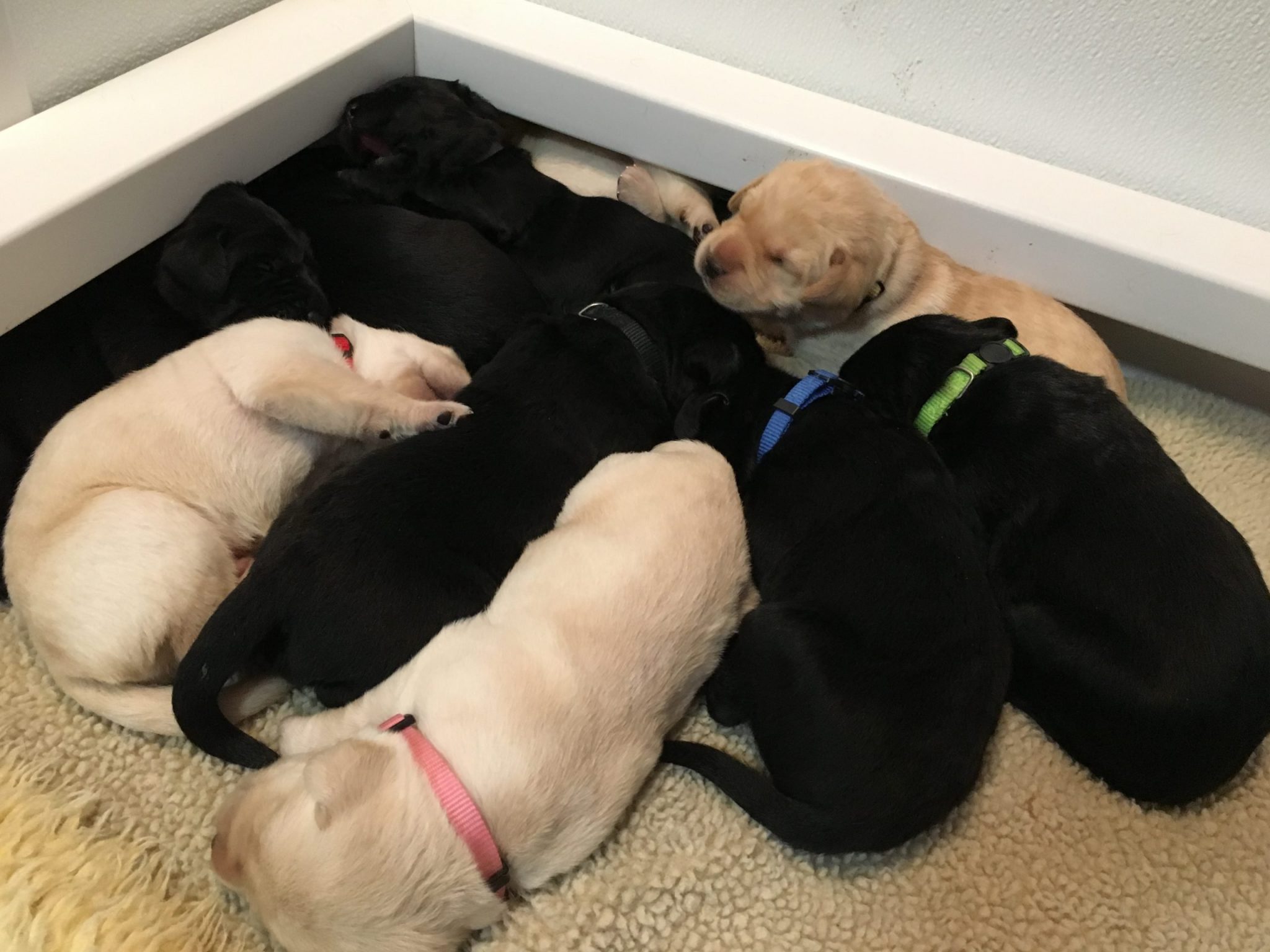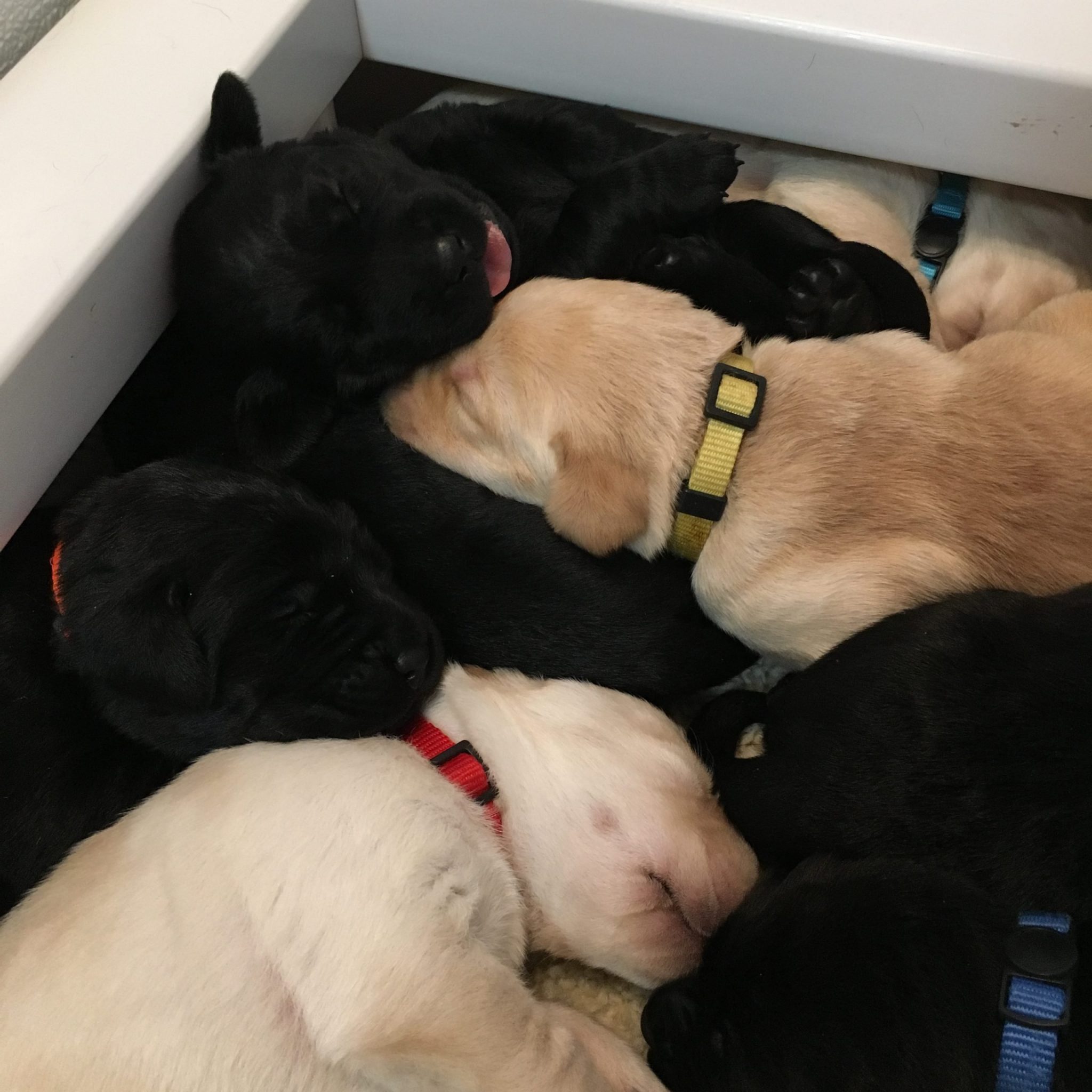My Dining Room is Now a Nursery
by Kate Albertini, NEADS Breeding & Puppy Development Coordinator
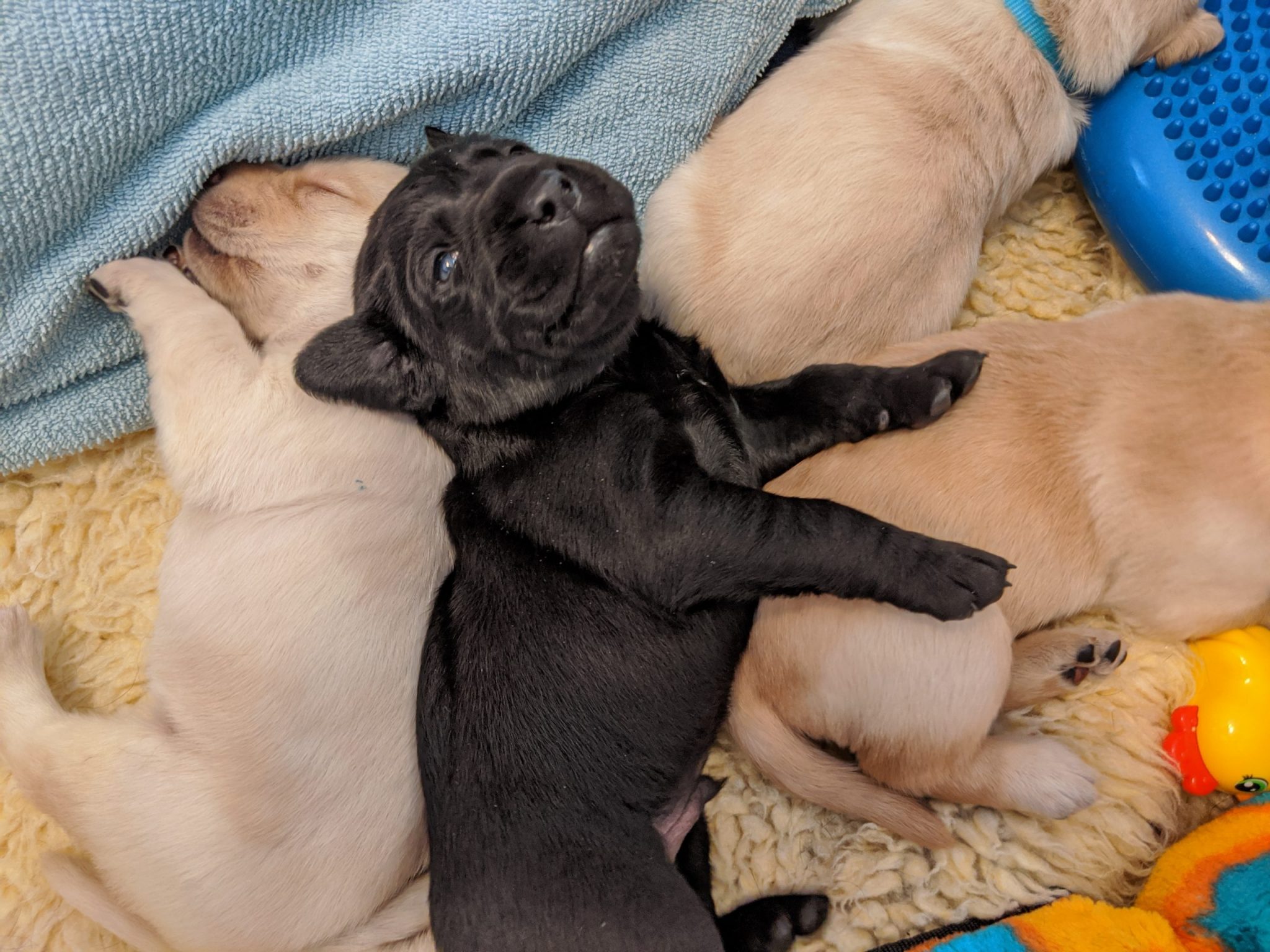 As part of our partnership with Guiding Eyes for the Blind, NEADS periodically hosts one of their litters from birth through about 8 weeks. In early March, Nursery staff welcomed Frannie, a pregnant brood* from Guiding Eyes to campus and whelped** her litter. They expected the next 8 weeks to unfold as they typically do with any of our litters. In other words, the puppies would be cared for by NEADS staff and volunteers in our Nursery, where they would grow and thrive.
As part of our partnership with Guiding Eyes for the Blind, NEADS periodically hosts one of their litters from birth through about 8 weeks. In early March, Nursery staff welcomed Frannie, a pregnant brood* from Guiding Eyes to campus and whelped** her litter. They expected the next 8 weeks to unfold as they typically do with any of our litters. In other words, the puppies would be cared for by NEADS staff and volunteers in our Nursery, where they would grow and thrive.
Then came the Coronavirus outbreak, and everything changed. Our Canine Operations team decided it would be best to move all dogs off campus into volunteer homes. But what do you do with a litter of 10 ten-day-old puppies? Kate Albertini, our Breeding & Puppy Development Coordinator tells the story from here.
We found amazing volunteers to take all the puppies from the Early Learning Center and dogs from the Canine Center. The litter we were hosting was the only piece of the puzzle left, as you cannot place a litter of puppies with a volunteer who has no experience raising puppies. I realized I had the perfect place in my home, and, after getting approval from the other members of the household, volunteered to take them. Guiding Eyes has a home litter care program that they use when their facility is at capacity, so they were supportive of the idea, too. Moving the litter to my house has allowed us to completely shut campus down and keep our staff socially distanced from each other.
NEADS has strict standards around biosecurity*** in the Nursery, and it’s no different at my house. The litter is double walled, with an ex-pen around the whelping box for extra protection. I have a pair of shoes that I wear only with the litter and keep hand sanitizer at the entrance to the pen. I toilet Frannie, the mom, out through the back door into the backyard since we don’t go there during the winter. I’m using the kitchen table as my desk so that as I do computer work during the day I can keep an eye on mom and litter.
Purpose-bred puppies follow an extensive socialization program that includes everything from exposure to a variety of objects, people, sounds, and smells to puppy massages to crate exercises. The first steps of the program start on day 3 of life. When moving the litter to my house, I had to decide which socialization items to bring with me and make sure I had a little bit of everything: objects, noises, surfaces, mobiles, and scents. I have a Google Home right by the pen, so I can play a wide variety of noises and music for the pups. One challenge as the puppies grow a little older is going to be exposing them to different types of people. I plan to dress up differently and wear glasses or hats some days in order to change my appearance. My boyfriend is tall and has a beard, so that will give the pups some variety, too.
The biggest difference in terms of raising a litter at home is weaving in daily life. At work, you can focus all of your attention on the litter. But at home, I go back and forth between laundry and cooking dinner and puppy massages and sanitizing the whelping box. It’s fun to get creative about weaving the two together. The puppies’ ears aren’t open yet, but I recently made a smoothie and was thinking the sound of the blender will be great socialization when the pups are a bit older. Things like the microwave, oven timer, TV, vacuum cleaner, and dishwasher are all things that we try to weave into the socialization plan when litters are on campus, but it’s much more seamless when it’s part of your daily life at home.
With my current responsibilities at NEADS, I’ve had to move away from the daily care of our litters, and I miss it. It’s truly magical to watch a litter grow day by day and teach the puppies everything they need to know about the world in order to grow into the best working dogs they can be. In spite of everything, I feel fortunate that I have this opportunity with Frannie's litter.
Frannie's Litter at 20 days old
So much to say!
Sweet dreams, little one!
Frannie's Litter at 18 days old
Frannie's Litter at 10 days old
* brood: a breeding female dog
** whelp: the process of delivering/birthing puppies
*** biosecurity: measures put in place to ensure that the litter remains protected from diseases and other health hazards
This is part of our COVID-19 coverage. See related updates here.
